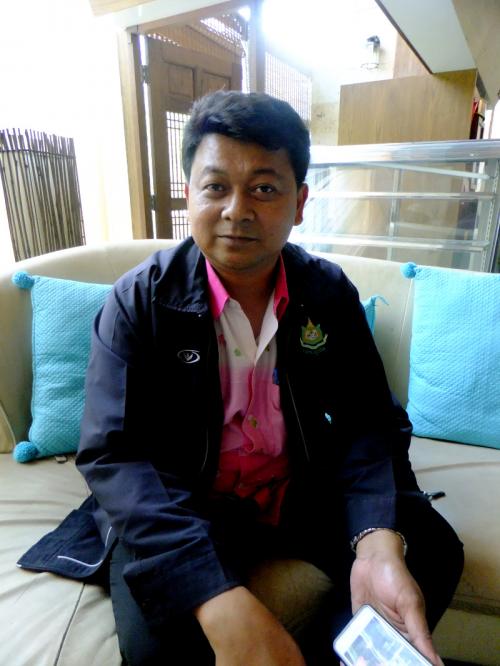Phuket Opinion: Taking responsibility for Phuket’s garbage

Environmental specialist Nutthakrit Polpetch, 45, is the director of the Phuket office of Natural Resources and Environment. He has a bachelor’s degree in Forestry from Kasetsart University. A native of Phattalung, he has lived in Phuket for 20 years. Here he talks about how managing organic garbage in Phuket can reduce garbage and also create useful products.
PHUKET: I am concerned that our garbage may become unmanageable in the near future. Estimates by the Phuket Office of Natural Resources and Environment project that the volume of trash produced in Phuket could reach as much as 1,000 tons per day by 2015.
Our incinerator can only burn 700 tons of garbage per day, and this is the amount we are producing now. We have to find a way to reduce the volume of garbage.
My feeling is: if you generate garbage, you must be responsible for it. I want Phuket residents to know about the state of the environment in Phuket. They should know that the landfill is already full and the only method we have to dispose of garbage is our incinerator.
I want to teach everyone that there are different types of garbage, how to separate and process it and how to benefit from it.
About 50 per cent to 60 per cent of garbage is organic matter, which when wet causes pollution when it is burned.
Instead of burning it, we can compost it to produce fertilizer. By composting it, we reduce the volume of garbage and pollution, as well as produce a useful product.
Actually, you can make a lot of products from organic garbage, not just fertilizer. You can make fabric softener, floor cleaner and dish-washing liquid. Making these products can save money. Royal Phuket City Hotel saves about one million baht each year with products like these and also has a learning center at the hotel to educate people.
We started our Organic Garbage Management project last February. I chose to begin the project at a temple. If we start with monks, we will always get support from the people, and since people visit temples regularly to make merit, they can easily see our project there.
Also, there tends to be a lot of food waste at temples and leaves scattered around the temple grounds. Now we have 17 temples in our project and good feedback – about 70 per cent of people who see our program are interested in participating.
Everybody has heard about making fertilizer from organic garbage, but few know how to do it. Our project has professionals with lots of experience teaching the participants.
We are supported by a 400,000-baht budget from the provincial government. My department works together with many local government offices on the island, and especially the Natural Resources and Environmental Protection Volunteer Network, who follow up and give support.
The Organic Management Project is a solution to a problem; but what we need to do is address the cause of the problem, which is lack of social responsibility. I want everyone to feel that after benefiting from Phuket, it is their turn to take care of Phuket’s environment.
An easy way to take part is by separating your trash. If you put your recyclables in front of your house with a sign saying “Please take”, someone who can benefit from your trash will pick it up.
Everyone is free to join our temple projects. Or, if you set up a group of 20 to 30 people, we can come and teach you about composting. You can call me directly at 089-6524642 Monday to Saturday, 8am to 4pm, or call Thiti Sawisai at 089-7244616.
I want to see Phuket clean and civilized, and I will continue this project until it is.
— Saran Mitrarat
Latest Thailand News
Follow The Thaiger on Google News:


























